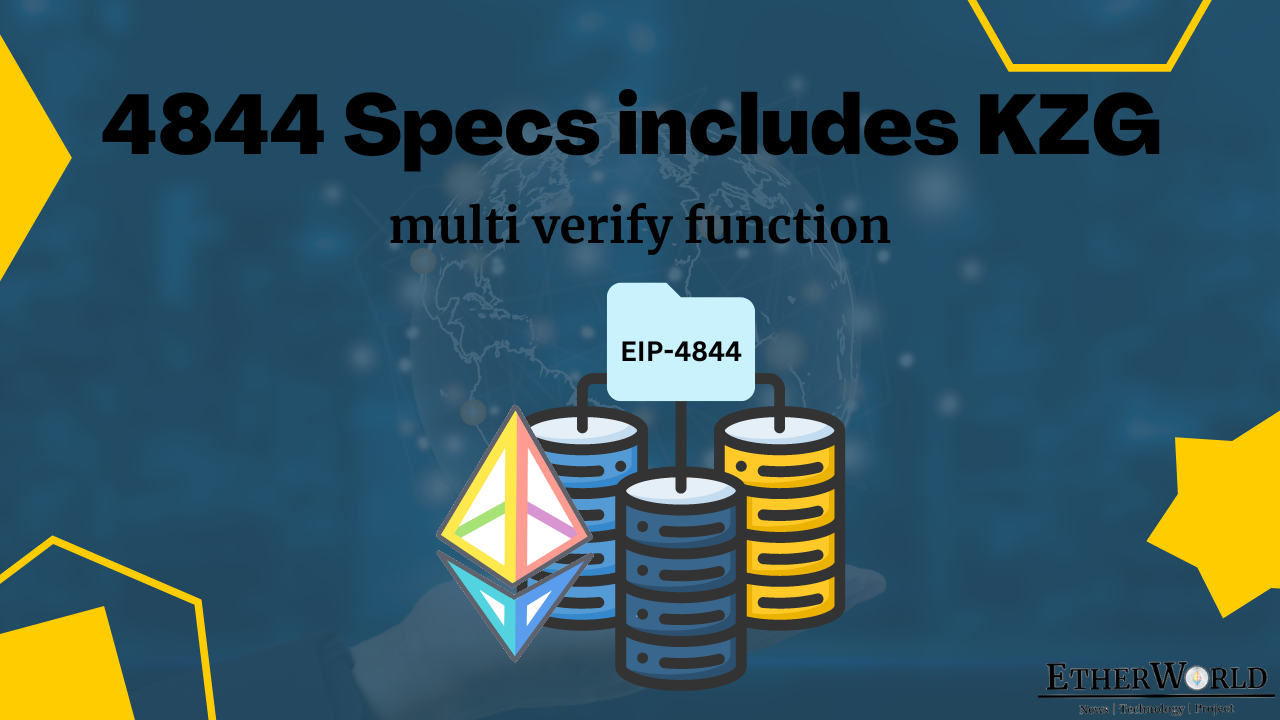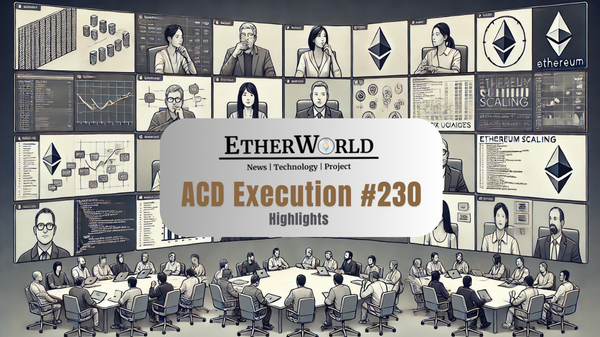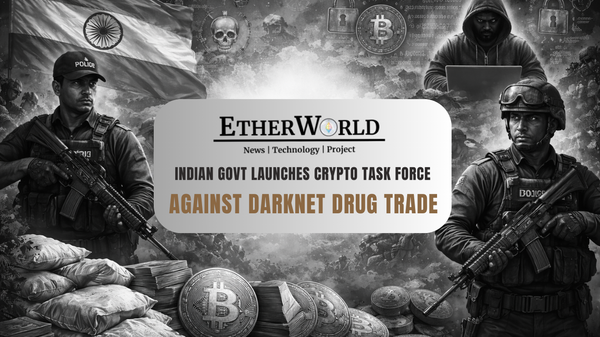Bypass Capacitor is the fourth release for the upcoming Capella upgrade. While this release doesn't alter Capella's consensus logic, it does introduce some important changes and additions to the Consensus specs. These include a new edge-case test, the migration of EIP-4844 references to the fork name "Deneb," freeing the Deneb blobs from block gossip and adding a new KZG API. Deneb is the name of the next consensus layer upgrade after Capella. In this article, we'll take a look at these updates and discuss why they are important.
- Addition of KZG multi verify function
- Excess data gas field is moved to end of txn data
- Free the Blobs PR Merged
- Other Changes
- CL Client Team Updates
Addition of KZG multi verify function
This implementation enables efficient verification when each blob is accompanied by its commitment proof, as isolated proofs can be used instead of aggregated proofs. In addition, this allows clients to verify individual blobs using their respective proofs or batch verify blobs with slightly faster verification.
Moreover, the c-kzg library has been updated, and teams are developing language bindings. The Python, Go, and Java bindings have already been completed. Additionally, the general kzg spec tests are being worked on and will be included in the consensus spec tests repository once completed.
Excess data gas field is moved to end of txn data
The developers have moved the excess data gas field to the end of the execution payload. Doing so keeps the other fields in the same position, preventing any changes to the Merkle-proof format.

Free the Blobs PR Merged
The latest release introduces significant improvements to the EIP-4844. The most notable change is the "decouple blobs" PR, which decouples blocks and blobs to boost network and processing efficiency. According to terence.eth, developers plan to conduct further network simulations to compare the performance of coupled and decoupled approaches once client implementations are ready.
Additionally, the developers have removed '0-Blob Txns' from EIP-4844 as part of the Cancun upgrade, further streamlining the protocol. Readers can read more about these updates on EtherWorld.
Continuing this ? on freeing the #eip4844 blobs, we move on to the second point: the ability to start re-broadcasting data earlier - again, we'll take a look at how the underlying protocol works in order to gain insight into the performance benefits: https://t.co/1jeiUKDP8H
— Jacek Sieka (@jcksie) February 22, 2023
Other Changes
Developers are exploring new transaction pool ideas. The current approach for launching EIP-4844 is to use restrictive tx pool rules that can be broadened later or augmented by third-party tx pools. Active discussions are taking place regarding rules for blob transactions, such as higher data gas fees and strict enforcement of blob count. There is also a debate about handling reorg blobs, including whether to re-insert from the mempool or utilize the engine API. These issues will be discussed further during the upcoming ACDC call.
In addition, Beacon APIs need an update for a validator to sign blobs. This topic will also be discussed during Thursday's ACDC call. For those unfamiliar with the Beacon Chain API, Etherworld Team has published a useful guide.
CL Client Team Updates
Consensus Layer team, Prysm is currently dedicating their time towards implementing the "free the blobs" PR, while the Lighthouse team is also focused on the same goal, and the Teku team has initiated their work on decoupling. Furthermore, the Lodestar team has also started working on the decoupling process.
In the meantime, EL client, Ethereum JS is looking to prioritize its efforts on rust-kzg and its implementation over the upcoming weeks. Similarly, Nethermind is planning to update its KZG bindings.
Core Developers have discussed these changes in the EIP-4844 Implementers' Call #16. Given that many Ethereum and developer community members will be occupied with ETHDenver next week, it has been decided that the following two EIP-4844 calls will be skipped. The next call is scheduled for March 7, two weeks from now. ACDC/E calls will still happen as per schedule.
Related Articles
- Shandong: Pre-Shanghai Testnet
- Zhejiang Public Testnet is Finalizing
- Why Ethereum Clients prefer SSZ over RLP?
- Upcoming Changes to Ethereum Blockchain
- How Warm COINBASE helps in Gas Cost Reduction?
- Activating ETH Withdrawal with Shanghai-Capella
- Transient Storage for Beginners: EIP-1153 Explained
- How Layer 3 in Future will look like?
- An Overview of Beacon Chain API
Related Videos
- Client Diversity
- Reth: Ethereum Execution Layer Client Written in Rust
- Sign-In with Ethereum: EIP-4361
- TWAMM: Time-Weighted Average Market Maker
- MobyMask: An Initiative to Eliminate Phishers
- Fractional NFTs: EIP-4675 using EIP-1155 & EIP-1633
Disclaimer: The information contained on this web page is for education purposes only. Readers are suggested to conduct their own research, review, analyze and verify the content before relying on them.
To publish press releases, project updates and guest posts with us, please email at contact@etherworld.co.
Subscribe to EtherWorld YouTube channel for ELI5 content.
Support us at Gitcoin
You've something to share with the blockchain community, join us on Discord!








